BEIJING, March 27 (Xinhua) — Chinese President Xi Jinping met with representatives of the U.S. business, strategic and academic communities at the Great Hall of the People in Beijing on Wednesday.
Xi welcomed members of the U.S. business, strategic and academic communities to China in blooming spring.
He noted that the China-U.S. relationship is one of the most important bilateral relationships in the world. Whether China and the United States have a cooperative or confrontational relationship bears on the well-being of the Chinese and American peoples and the future of humanity.
“The two countries’ respective success is an opportunity for each other. As long as both sides see each other as partners and show mutual respect, coexist in peace and cooperate for win-win results, China-U.S. relations will get better,” Xi said.
This year marks the 45th anniversary of diplomatic relations between China and the United States. The history of China-U.S. relations is one of friendly exchanges between the two peoples. Its existing chapters are written by the people, and the future will of course be created by the people, Xi said.
“As a Chinese saying goes, doing good is as hard as an uphill climb, while a misstep may easily lead to a free fall,” Xi said. He expressed the hope that people from all sectors of Chinese and American societies will have more mutual visits and exchanges, expand common ground and mutual trust, overcome various distractions, and deepen mutually beneficial cooperation, in an effort to bring more tangible benefits to the two peoples and inject more stability into the world.
Xi listened attentively to his U.S. guests and responded to their comments.
Xi pointed out that the Chinese economy is sound and sustainable. Last year, China registered one of the highest growth rates among the major economies and accounted for over 30 percent of global growth as before. This was due both to the hard work of the Chinese people and to international cooperation.
China has come to where it is today after overcoming all kinds of difficulties and challenges. China did not collapse as predicted by the “China collapse theory,” nor will it peak as forecasted by the “China peak theory,” he said.
“We will continue to advance high-quality development and Chinese modernization, enable the Chinese people to live a better life, and contribute more to sustainable development in the world. We have the confidence and determination that China’s development has a bright future,” he said.
Xi recalled his oft-repeated saying that reform and opening up holds the key to contemporary China’s catching up with the times in great strides. China’s reform will not pause, and its opening up will not stop.
He said China is planning and implementing a series of major steps for comprehensively deepening reform, and steadily fostering a market-oriented, law-based and world-class business environment. This will create broader development space for U.S. and other foreign businesses.
Faced with the recent years’ new and evolving situation in China-U.S. business ties, the two sides should stay committed to mutual respect, mutual benefit and equal-footed consultation, follow economic and market rules, expand and deepen mutually beneficial business cooperation, respect each other’s development rights, and work for win-win outcomes for the two countries and the world at large, Xi said.
The Chinese president said U.S. businesses are welcome to participate more in Belt and Road cooperation, attend large-scale business events such as the China International Import Expo, and continue to invest in China, cultivate the market and grow their business.
Xi emphasized that over the past couple of years, the China-U.S. relationship experienced some setbacks and serious challenges, from which lessons should be learned.
“The relationship cannot go back to the old days, but it can embrace a brighter future,” Xi said.
Xi said the most important understanding he reached with President Joe Biden at last year’s San Francisco meeting was on the need to stabilize and improve China-U.S. relations.
In the past few months, Chinese and U.S. officials have worked to follow through on the common understandings of the two presidents, maintained communication and made progress in the political and diplomatic, economic and financial, law enforcement and counternarcotics, climate change and people-to-people fields, Xi said.
Under the new circumstances, China and the United States have more, not fewer, common interests. China and the United States should help rather than hinder each other’s development, both in traditional areas such as trade and agriculture, and in emerging areas such as climate change and artificial intelligence, according to Xi.
He said promoting world economic recovery and settling international and regional issues require China and the United States to coordinate and cooperate with each other, and to think and act as major countries.
He called on the U.S. side to work with China in the same direction, develop a right strategic perception of each other, handle sensitive issues properly, maintain the momentum of recovery and stabilization of the relationship, actively explore the right way for the two countries to get along, and promote the sustained, steady and sound development of China-U.S. relations.
In their remarks, Evan Greenberg, chairman of the National Committee on U.S.-China Relations, Stephen Schwarzman, chairman and CEO of the Blackstone Group, Cristiano Amon, president and CEO of Qualcomm, Graham Allison, founding dean of Harvard’s John F. Kennedy School of Government, and Craig Allen, president of the U.S.-China Business Council thanked President Xi for taking time to meet them.
They noted that China’s exceptional economic growth and transformation over the past decades speak to its strong resilience and vitality. Under the extraordinary leadership of President Xi, China is committed to developing new quality productive forces and achieving high-quality development which is more sustainable.
They said the development rights of the Chinese people should be respected. They expressed confidence that China will realize its development goals and contribute to a stronger, more integrated global economy. A strong and prosperous China is a positive force in the world.
They said sharing close economic ties, the United States and China can only develop and thrive in peaceful coexistence. The “Thucydides trap” is not inevitable.
U.S. businesses applaud the important measures that China has recently rolled out to further reform and open up, are optimistic about China’s development prospects, will maintain their strong commitment to the Chinese market, and pursue close and long-term cooperation with China, according to the representatives.
They said the San Francisco meeting between President Xi and President Biden last November has shored up the expectation and confidence of all sectors of American society and the world in U.S.-China relations.
The U.S. business, strategic and academic communities support the United States and China in bolstering exchanges and communication at all levels, enhancing mutual understanding, trust and cooperation, joining hands to address global challenges, and fostering a stable, sustainable and productive U.S.-China relationship, the representatives said.
Wang Yi participated in the meeting. ■
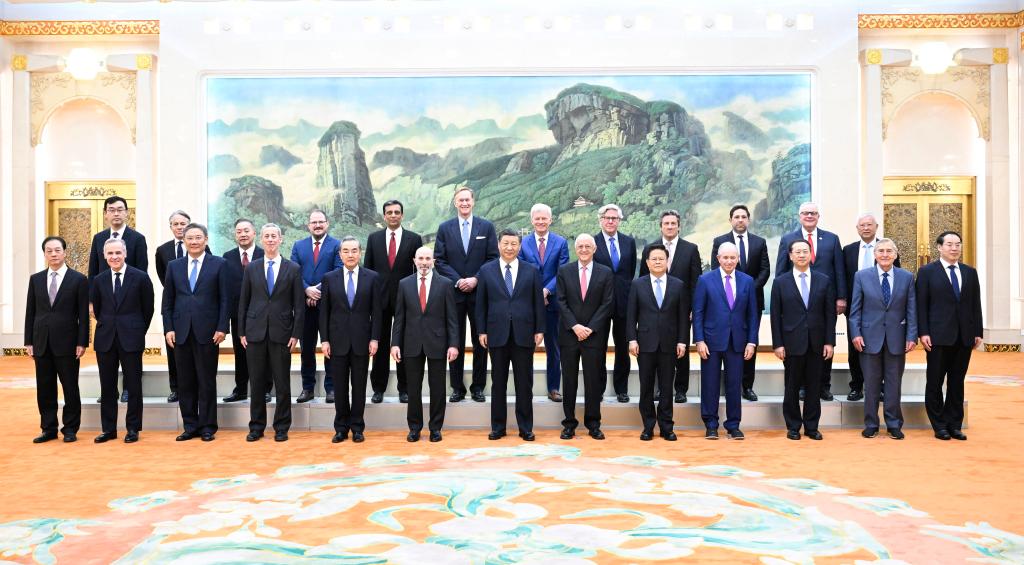
Chinese President Xi Jinping meets with representatives from American business, strategic and academic communities at the Great Hall of the People in Beijing, capital of China, March 27, 2024. (Xinhua/Shen Hong)
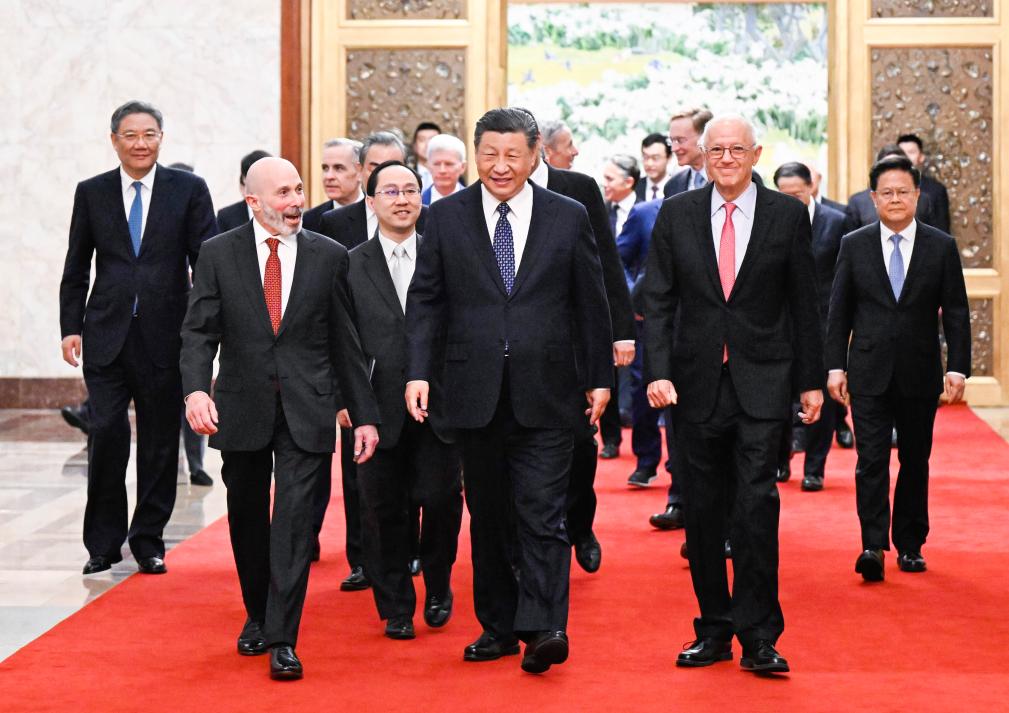
Chinese President Xi Jinping meets with representatives from American business, strategic and academic communities at the Great Hall of the People in Beijing, capital of China, March 27, 2024. (Xinhua/Shen Hong)
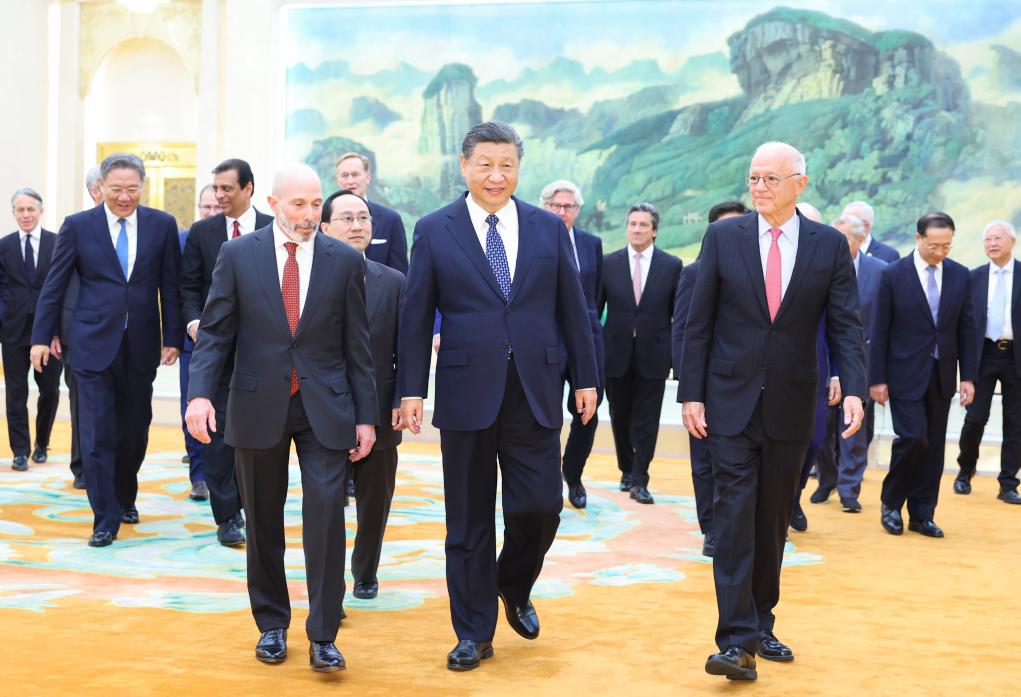
Chinese President Xi Jinping meets with representatives from American business, strategic and academic communities at the Great Hall of the People in Beijing, capital of China, March 27, 2024. (Xinhua/Huang Jingwen)
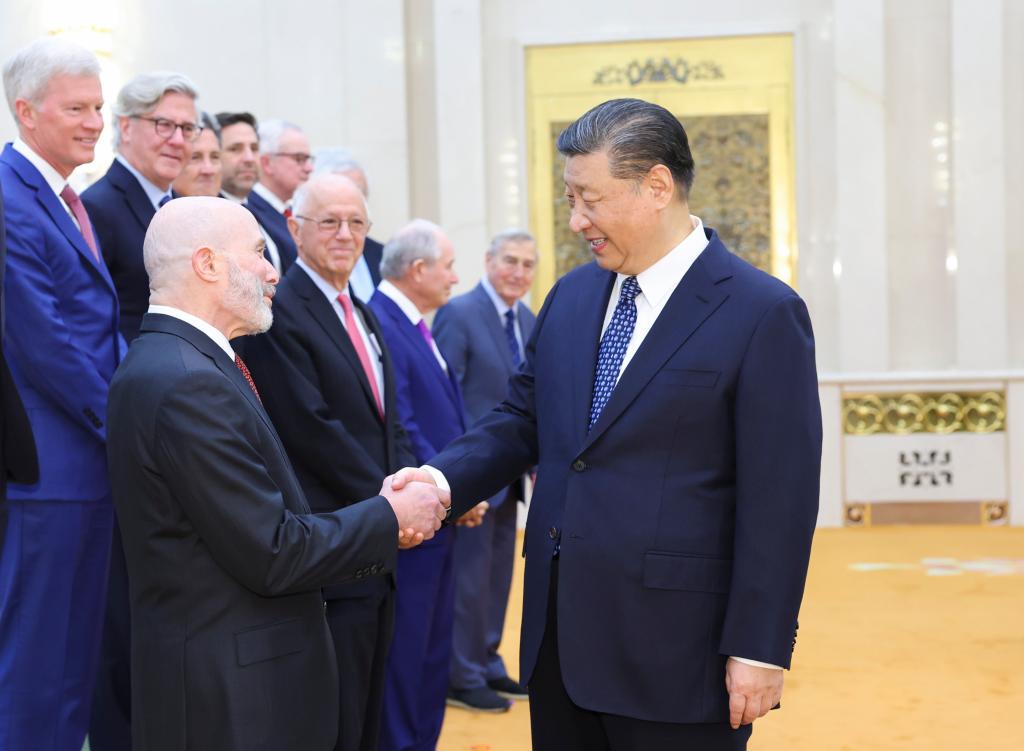
Chinese President Xi Jinping meets with representatives from American business, strategic and academic communities at the Great Hall of the People in Beijing, capital of China, March 27, 2024. (Xinhua/Huang Jingwen)
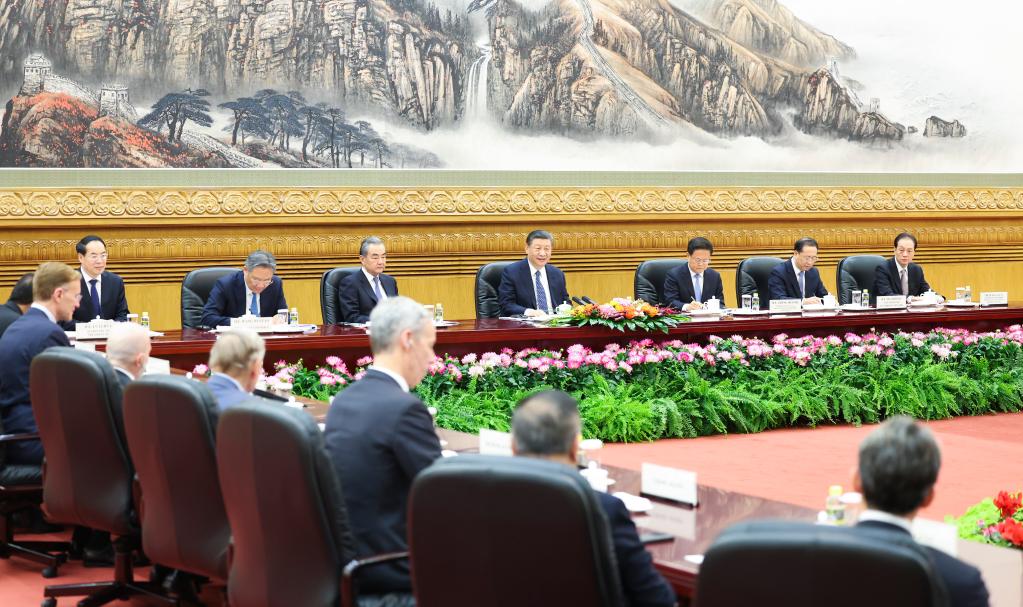
Chinese President Xi Jinping meets with representatives from American business, strategic and academic communities at the Great Hall of the People in Beijing, capital of China, March 27, 2024. (Xinhua/Huang Jingwen)
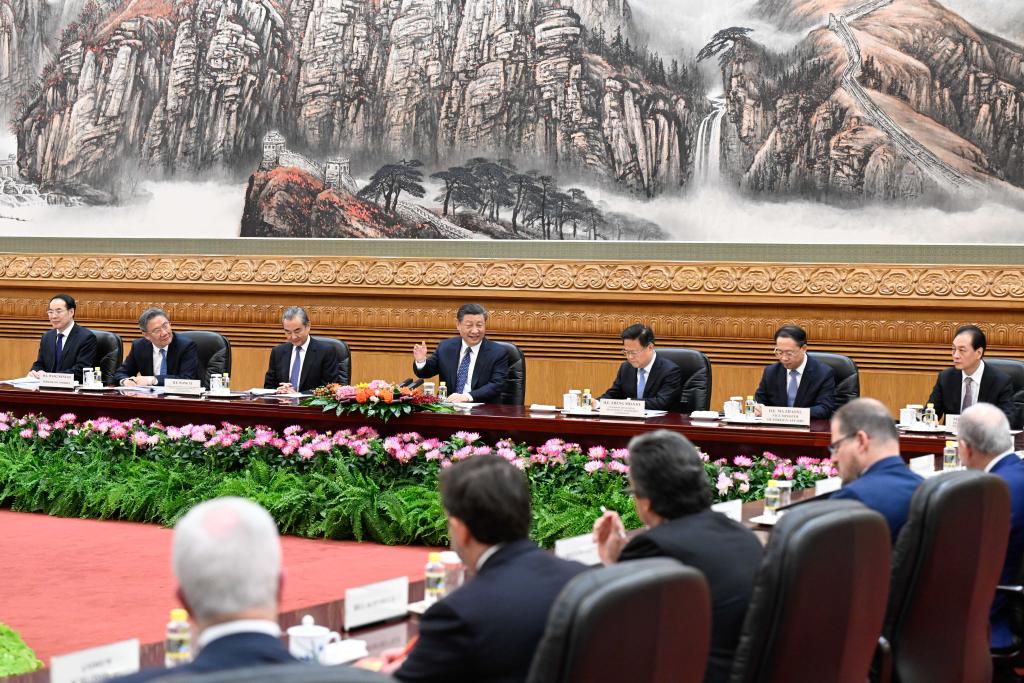
Chinese President Xi Jinping meets with representatives from American business, strategic and academic communities at the Great Hall of the People in Beijing, capital of China, March 27, 2024. (Xinhua/Shen Hong)












